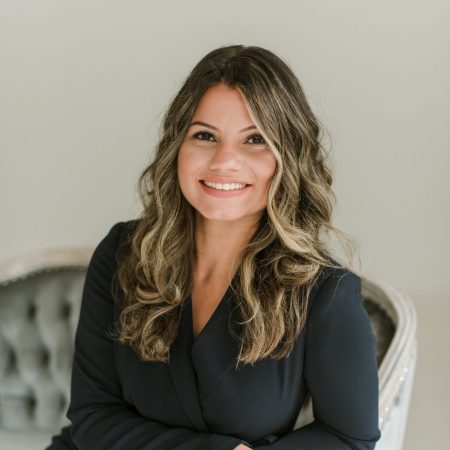Clear boundaries throughout our lives are among the most potent navigational tools that define our relationships with others, ourselves, and our health. Our lives and social encounters become healthier and more balanced when clear boundaries exist. Knowing these limits for ourselves and enforcing them pave the way towards holistic wellness rather than allowing toxic habits or one-sided relationships to continue.
Physical boundaries (think mountains, rivers, borders, gates, etc.) limit or prohibit access from one place to another. Metaphorical and personal boundaries operate similarly. A person’s boundaries indicate what they need, what they are or are not comfortable with, and how they want to be treated. Boundaries are ways to articulate what it means to “cross the line” in each of our relationships and provide a warning that crossing these lines will have repercussions.
Boundaries in one way or another already exist for every person you come in contact with, be it friends, family, partners, children, employers, coworkers, or strangers. But setting healthy or clear boundaries is critical to managing your personal and professional life. Without these limits to help manage your time, self-talk, and relationships, you may experience lower levels of self-esteem, learned helplessness, or a fear of criticism, among other challenges that lead you to believe that it might be time for therapy.
What are the Different Kinds of Boundaries?
In addition to personal boundaries, there are also physical, emotional, mental, intellectual, and time boundaries.
Physical Boundaries
Physical boundaries are your comfort with physical proximity, sexuality, and commonly shared space. Examples include:
- Respecting your personal space and telling someone when they are too close
- Attending to your physical needs, such as stating when you need to eat, rest, or take a break
- Stating that you do not like being touched a certain way or determining who is allowed to touch you
- Designating your personal space, such as your room, home, or office, and letting others know when they’re unwelcome in these places
Emotional Boundaries
Emotional boundaries require understanding your emotional bandwidth, how much you can give to others, and the personal information you are willing to share. Examples include:
- Asking to postpone a conversation if your emotional capacity is too low
- Regulating the amount of personal information you share with your coworkers
- Asking if someone is able or in a good place (mentally or physically) to listen or help you before “emotionally dumping” all of your problems on them
Mental or Intellectual Boundaries
Mental boundaries affirm your right to form thoughts and opinions unique to you. Examples include:
- Not letting someone belittle or dismiss you for disagreeing with them
- Agreeing to disagree when you have conflicting views with someone
- Putting an end to unproductive conversations
- Respecting other people’s intelligence and perspective
Time Boundaries
Time boundaries are recognizing the value of your time and having the right to determine how you spend it. Examples include:
- Not attending an event over the weekend because you desire to do something else
- Recognizing that you have overcommitted yourself and canceling plans or delegating tasks to others
- Setting aside specific blocks of time, or dates, where you are unavailable
- Recognizing how you’re spending your time (on social media, staying up late, binging shows, etc.) and setting limits
Healthy and Unhealthy Boundaries in Relationships
Clear boundaries are an important part of self-respect and self-care. By determining your boundaries, you are first and foremost acknowledging your own needs and comfort level. By speaking those boundaries aloud, you are actively increasing your sense of self-worth.
Whether you need to set limits with yourself or with someone in your life, you can communicate your needs without being aggressive. Healthy boundaries are not about getting your way in a relationship but about living your life according to your comfort, sharing your wishes and needs in relationships, and accepting that you can’t control what other people feel.
An unhealthy, inconsistent, or crossed boundary has negative consequences for your mental wellbeing. If you allow yourself to be treated in ways that are contrary to your health, patterns of acquiescing to others will become normalized and can lead to abusive romantic relationships or other manipulative situations.
To know whether you have a need for boundaries, consider the following:
When you have healthy boundaries, you
- Ensure that your physical and emotional space is protected
- Share responsibility and power in an equal partnership
- Have the confidence to say “yes” or “no” and are ok with other people saying “no”
- Don’t let others’ thoughts, feelings, or desires affect your own
- Feel secure and develop mutual trust in your relationship
When you have unhealthy boundaries, you
- Take on the responsibility of ensuring others’ happiness
- Are unable to listen non-defensively
- Have a hard time with change, letting go, or moving on
- Give others the power to make decisions for you
- Form an opinion of yourself based on how other people treat you
How to Set and Verbalize Your Boundaries
It can be challenging to establish boundaries in your relationships that are safe and healthy. For example, some people struggle with assertiveness, with saying “no,” or their desire to please others. While asserting yourself or asking for what you need can be challenging, these conversations are an important exercise in self-worth.
Top Tips for Verbalizing your Boundaries
- Define & stick to what you know: Identify where your boundaries are and communicate what you need from the other person. Ideally, focus on your needs and desires rather than highlighting someone else’s actions.
- Get specific: The more specific you are, the easier it will be to manage these conversations, although avoid overexplaining as that can create defensiveness in the other person.
- Don’t be aggressive; speak calmly and with a relaxed tone of voice. If you cannot manage this in the moment, plan a time to talk when you’re feeling less emotionally flooded.
- Keep it accurate: As much as possible, explain the real reason why you aren’t going to do something or why it makes you uncomfortable.
- Never give in to pressure: If something is causing discomfort or isn’t in your best interest, don’t be afraid to say “no” to other people.
Boundary Conversation Starters
“When this happened, I felt uncomfortable. In the future, I’d like this to happen.”
“_______ is a boundary for me.”
“Something I’ve learned about myself is that I need time to process when we’re having difficult conversations. I think that if we did things differently, it would leave us both feeling more calm and controlled.”
“When you disagree with me in that tone, I feel belittled and it makes it hard to want to continue conversations. If we can’t speak about this respectfully, I will not participate in these types of conversations.”
Over time, the more you practice verbalizing your boundaries, the easier it will become. Sometimes, however, we require more support. To help you navigate these tough conversations, we have created a template that breaks down the steps of speaking up in such a way that makes you feel heard and understood.
Tackling the Guilt Associated with Setting Boundaries
Setting boundaries can make you feel selfish, guilty, or mean. You may feel this way because it’s one thing to tell yourself you matter, but another to say to others. It’s also possible that you didn’t experience clear or consistent boundaries as a child, so they don’t come naturally to you. Prioritizing yourself and getting what you want or need may make you feel guilty.
Self-affirmations to Empower Yourself to Use your Boundaries:
- Taking care of my emotional and physical needs is essential to me
- It is my right to be respected
- Self-care is crucial
- Keeping everyone happy is impossible
By setting boundaries more frequently, you will see your needs and wants as legitimate, reducing guilt. In addition, you’ll start to surround yourself with others who share the same beliefs about your wants and needs. Remember: Your feelings are valid. You deserve to be safe and respected. Your needs are paramount. Setting clear boundaries allows you to be yourself, which is key to creating a healthy relationship with yourself and others!
Whether you need assistance setting boundaries or are worried about a loved one who needs help, you can schedule a free consultation with one of our counselors today or call us at (470) 740-7121. We look forward to hearing from you!


